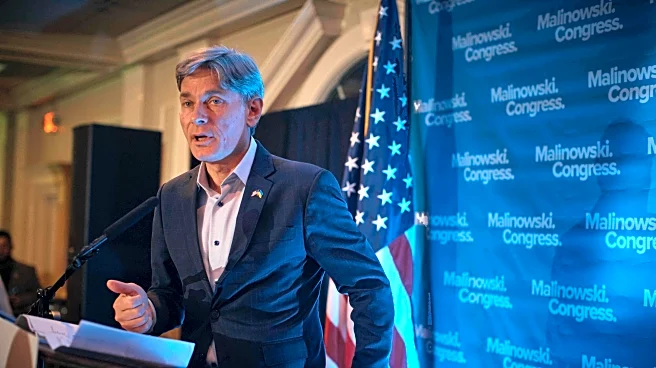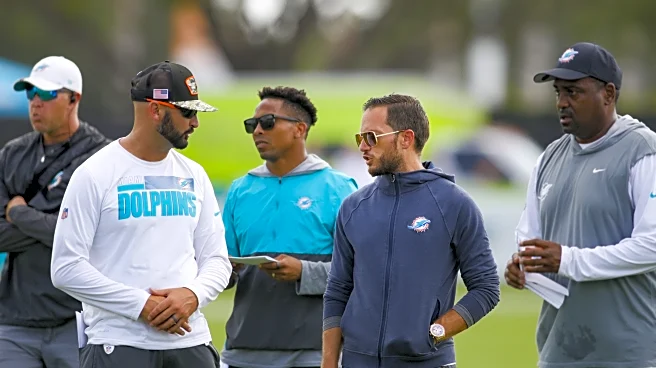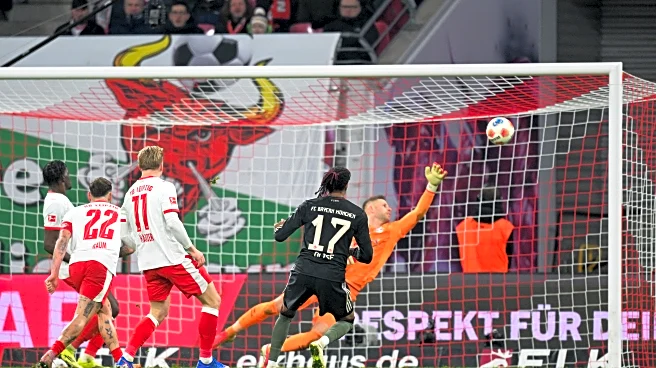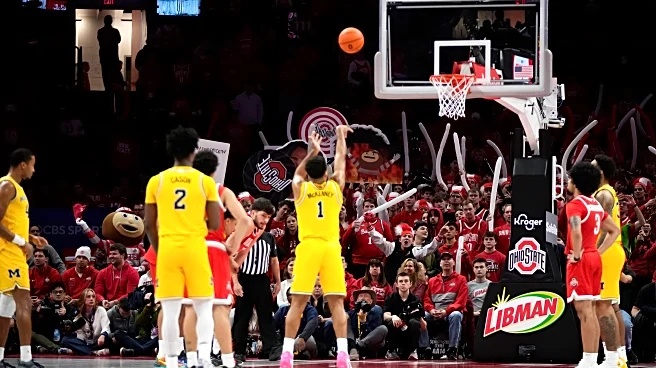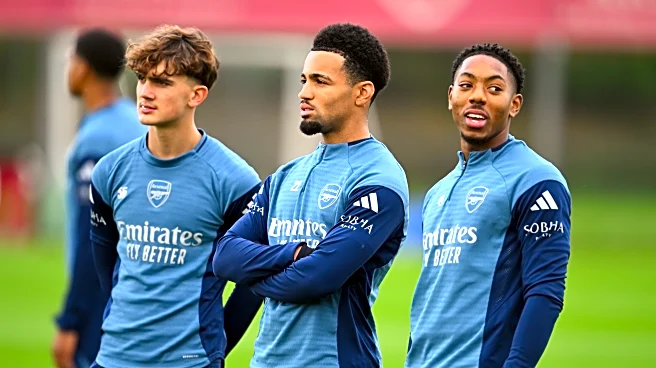What's Happening?
The Women's National Basketball Association (WNBA) is facing a potential work stoppage as its collective bargaining agreement (CBA) with the Women's National Basketball Players Association (WNBPA) is set
to expire in two weeks. This development comes at a time when the league is experiencing significant growth, with the recent WNBA Finals drawing 1.5 million average viewers and plans to introduce five new franchises over the next three seasons. Additionally, a new media rights deal valued at over $200 million annually will commence next season. Despite these advancements, negotiations for a new CBA have been challenging, with players demanding more than 9.3 percent of the league's revenue and supermax contracts exceeding $1 million per year. Maverick Carter, LeBron James' business partner, is reportedly planning to establish a new women's professional basketball league to rival the WNBA, leveraging his extensive business connections.
Why It's Important?
The expiration of the WNBA's CBA and the potential establishment of a rival league could significantly impact the landscape of women's professional basketball in the United States. The WNBA's growth and new media deal highlight its increasing commercial viability, yet the unresolved CBA negotiations underscore ongoing tensions between the league and its players. If Maverick Carter successfully launches a competing league, it could offer players alternative opportunities, potentially leading to shifts in player loyalty and market dynamics. This situation could also influence public perception and investment in women's sports, as stakeholders assess the viability and attractiveness of competing leagues.
What's Next?
As the CBA expiration approaches, the WNBA and WNBPA must navigate complex negotiations to avoid a work stoppage. The league's ability to address player demands and secure a favorable agreement will be crucial in maintaining stability and growth. Meanwhile, Maverick Carter's plans for a new league could accelerate if the WNBA fails to resolve its internal issues, potentially attracting players seeking better compensation and conditions. The outcome of these developments will likely shape the future of women's basketball, influencing league structures, player contracts, and fan engagement.
Beyond the Headlines
The potential emergence of a rival league raises questions about the ethical and cultural implications of sports management and player treatment. The WNBA's struggle to offer competitive salaries reflects broader issues of gender equity in sports, prompting discussions on how leagues can better support female athletes. Additionally, the involvement of international sovereign wealth funds in Carter's venture highlights the globalization of sports and the increasing influence of foreign investments in shaping domestic sports markets.




